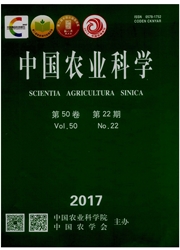

 中文摘要:
中文摘要:
【目的】研究辐照对蟹过敏蛋白生化性质和抗原性的影响。【方法】选择3、5、7、9kGyγ射线对蟹过敏蛋白进行辐照处理,利用紫外分光光度计测定辐照后蟹过敏蛋白溶液浓度和浊度变化;荧光光度计测定辐照后蟹过敏蛋白溶液疏水性变化;SDS-聚丙烯酰胺凝胶电泳测定辐照后过敏蛋白分子量的变化;Western blot印迹和间接竞争ELISA法测定辐照后过敏蛋白抗原性变化。【结果】辐照使过敏蛋白溶液的浓度下降,浊度增加,疏水性提高,过敏蛋白条带消失,硝酸纤维素膜上无过敏条带产生,且随着辐照剂量的增加,辐照后过敏蛋白与抗体结合能力减弱。【结论】辐照使过敏蛋白的空间结构发生变化,抗原决定簇被掩盖或破坏,证明辐照技术可以有效降低蟹过敏蛋白的致敏性。
 英文摘要:
英文摘要:
Objective The study was conducted to evaluate the effect of γ-irradiation on the biochemical and immunological properties of an crab allergen.Method Crab protein solutions containing allergen were irradiated at 3,5,7 and 9 kGy.The changes of concentration,turbidity and hydrophobicity of the irradiated protein solution were determined by UV and fluorescence spectrophotometer.SDS-PAGE electrophoresis was used to analyze the change of molecular weight.Changes in antigenicity of the irradiated protein were observed by competitive indirect enzyme-linked immunosorbent assay (ELISA) and Western blotting. [Result] The turbidity and hydrophobicity of the crab allergen solution increased and its concentration decreased with the increase of irradiation dose. Patterns detected by the SDS-PAGE and the immunoblot showed that the band of allergy protein disappeared. Inhibition abilities of allergy protein against polyclonal IgG decreased with the increasing irradiation dose. [Conclusion] The conformation and epitopes on crab allergen were structurally altered by irradiation. So γ-irradiation may provide a potential method for cowering the antigenicity of crab allergen.
 同期刊论文项目
同期刊论文项目
 同项目期刊论文
同项目期刊论文
 期刊信息
期刊信息
